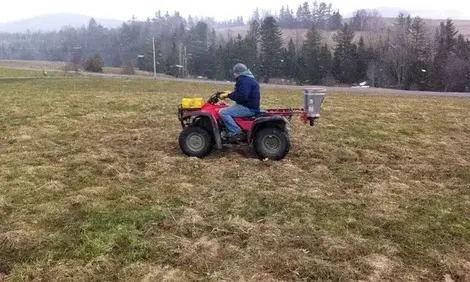



Call for Cooperation to Rebuild Markets
GERMANY - A call has been sent out to build cooperation between Germany and Russia to rebuild markets in the face of the current ban on agricultural exports from the EU.Speaking at the EuroTier exhibition in Hanover, state secretary in the German Department of Agriculture, Robert Kloos said that the German agricultural sector had been hit hard by the embargo.
Before the ban agricultural exports from Germany to Russia had reached €300 million.
Following the ban they had fallen to €44 million.
Dr Kloos, who was speaking at a seminar on the dairy sector in Russia, Eastern Europe and Central Asia said that before the ban on exports 3.7 per cent of Germany’s agricultural exports had been in dairy products.
He stressed that with the removal of quotas by the European Union, the market will become freer.
“There has been a reduction in prices recently because of the quotas and there could be an increase in exports in the first part of next year,” Dr Kloos said.
He added that following the ban on exports by Russia the farming community in Germany had received strong support from both the EU and the German government.
“Exports are the motor for our industry – our sector is export oriented,” said Dr Kloos.
“German farms earn one Euro in four through exports.”
He added that the German food and agriculture sector is well positioned for the future, but it has to find new markets for exports.
He said the ties between Russia and countries such as Kazakhstan and Uzbekistan have been strong with Germany supporting cattle raising in these countries and developing projects for milk production in Russia in particular.
“Germany wants to continue trade activity as well as providing farming and technical support to Russia,” he said.
“We want to work with these countries on a level playing field.”
In reply, deputy in the Russian Duma and a member of the Russian Milk Union, Airat Khairullin stressed the potential for the Russian agriculture sector to expand and develop.
He said that the sanctions that had been introduced had been detrimental to both sides.
“The next six to 12 months will be even more difficult,” he said.
However, he added that Russia is now driving towards a programme of self-sufficiency in agriculture because previous policies had damaged the farming sector.
He said that in the past Russia because it had great energy resources had relied on energy exports. Which allowed them to buy in food and agricultural products.
However, this policy had damaged the farming sector.
Now, he said that Russia is nearly 100 per cent self-sufficient in poultry and is growing in self-sufficiency in the dairy sector.
He added that the agricultural sector had also been hit by the fall in the value of the rouble.
“We want to work with Germany – to cooperate,” said Mr Khairullin.
“But we want to be more independent in food production in the future.”



